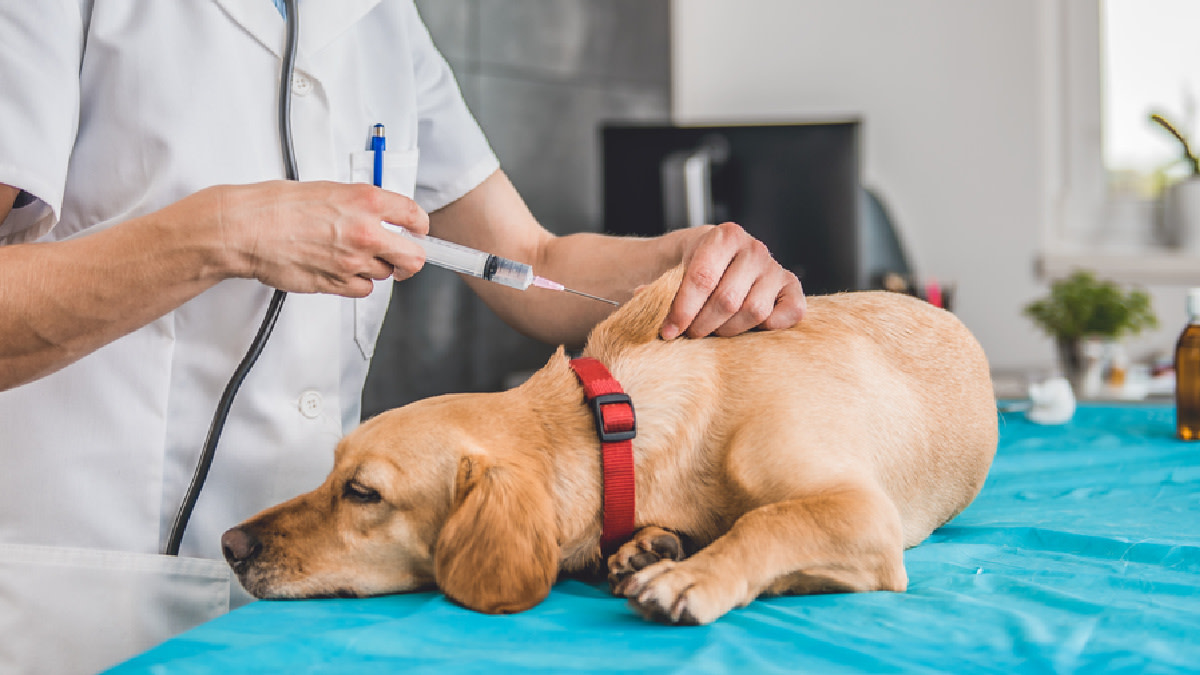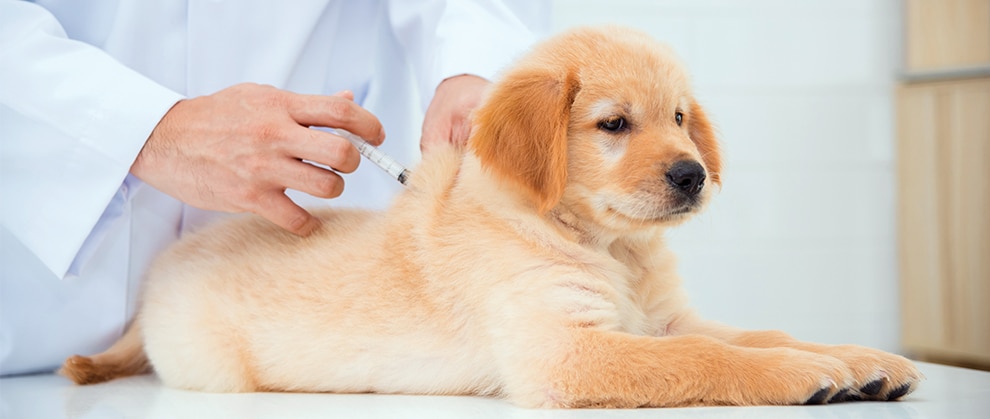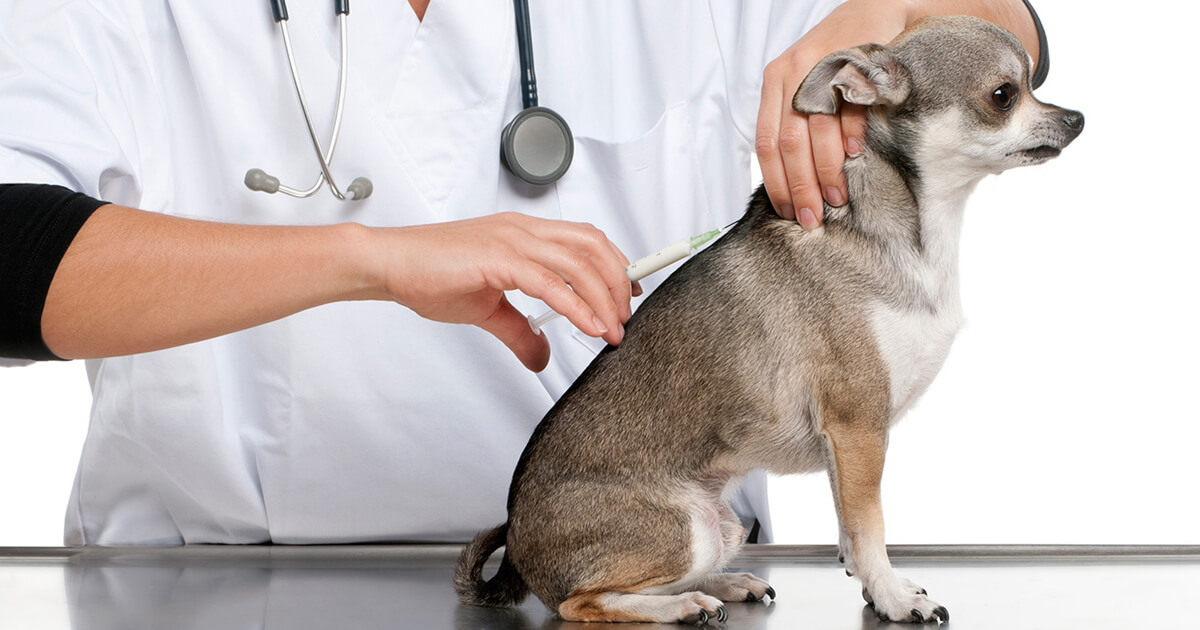Vaccinating your dog is one of the most important aspects of responsible pet ownership. It ensures your furry friend is protected against preventable diseases, some of which can be life-threatening. Yet, many pet owners are uncertain about when and how to vaccinate their dogs. This article aims to provide useful advice on dog vaccinations, guiding you through the process, and helping to ensure your dog stays happy and healthy.
Understanding Dog Vaccinations
To begin, it’s crucial to understand what dog vaccinations are and why they are important. Vaccines work by stimulating the dog’s immune system, preparing it to fight specific diseases. Essentially, when a dog is vaccinated, a small, harmless part of the virus or bacteria is introduced into the body. This activates the immune system to recognize the foreign invader and produce antibodies, creating immunity without causing illness.
There are two main categories of dog vaccines: core and non-core. Core vaccines are considered essential for all dogs due to the severity and widespread nature of the diseases they protect against. These include vaccines for rabies, parvovirus, distemper, and adenovirus. Non-core vaccines, on the other hand, are given based on a dog’s lifestyle or geographic location. These might include vaccines for Bordetella (kennel cough), Lyme disease, or leptospirosis. By providing protection from diseases, vaccinations not only safeguard the individual dog but also help in establishing herd immunity within dog communities, minimizing the spread of infections.

Vaccinations are not just a matter of health but are also a legal requirement in many regions, particularly for diseases like rabies. Therefore, ensuring your dog is up to date with its vaccinations is both a health and a legal responsibility.
When to Start Vaccinating Your Dog
Once you understand the importance of vaccinations, the next step is knowing when to begin. Vaccination schedules are critical to ensure full protection, especially for puppies who are more vulnerable to disease. Puppy vaccinations typically begin between six and eight weeks of age. At this young age, their immune systems are still developing, and early vaccination helps build protection against potentially deadly diseases like parvovirus and distemper.

Puppies will need a series of vaccinations spread out over several weeks, often until they are 16 weeks old, with boosters given in the first year to ensure long-term immunity. It’s important not to miss these follow-up shots, as skipping doses can leave your dog susceptible to infection.
For adult dogs, vaccination schedules depend on their history and the vaccines being administered. Core vaccines for adult dogs are generally given once every one to three years, depending on the specific vaccine and the dog’s health status. Special considerations must be made for senior dogs or those with pre-existing conditions, as their immune systems may not respond to vaccines as effectively as younger dogs.
Common Types of Vaccines for Dogs
Now that we’ve covered the timing, let’s dive deeper into the types of vaccines your dog might receive. Core vaccines are those recommended for all dogs due to the serious nature of the diseases they prevent. The rabies vaccine, for example, is legally required in many areas and protects against a fatal disease that can also affect humans. Canine distemper is another core vaccine, guarding against a highly contagious virus that can affect the respiratory, gastrointestinal, and nervous systems. Parvovirus, known for causing severe gastrointestinal symptoms, and canine adenovirus, which protects against hepatitis-like conditions, round out the core vaccines.
Non-core vaccines, while not mandatory for all dogs, are essential for dogs with particular lifestyles. Dogs that spend time in kennels, dog parks, or around many other animals should be vaccinated against Bordetella, a common cause of kennel cough. Lyme disease is another concern, especially for dogs that live in or visit areas with high tick populations. Leptospirosis, a bacterial infection spread through water, may also be necessary depending on your dog’s exposure to wildlife or rural areas. Consulting with your veterinarian will help you decide which non-core vaccines are best for your dog.
Preparing Your Dog for Vaccination
Ensuring a smooth vaccination process involves more than just showing up at the vet’s office. Preparation plays an important role in keeping your dog calm and comfortable. Choosing the right veterinarian is the first step in this process. Find a vet you trust and who is experienced with vaccinations. A good vet will explain the procedure clearly, answer any questions, and ensure your dog’s health is prioritized.
At home, you can take a few steps to make the experience easier for your dog. Before the appointment, make sure your dog is well-exercised and fed, as a tired dog is often calmer and more relaxed. Bringing a favorite toy or blanket to the vet’s office can provide comfort and help reduce anxiety. Staying calm yourself is equally important. Dogs are highly intuitive, and if you are stressed, your dog will likely pick up on that energy.

During the appointment, vaccinations are usually quick and cause only minor discomfort. However, it’s normal for some dogs to be a little nervous. Most vets will perform a quick check for any immediate adverse reactions after the shot, ensuring that your dog is safe before you leave.
Post-Vaccination Care for Dogs
Once the vaccine is administered, post-vaccination care is crucial to ensure your dog recovers comfortably. It’s common for dogs to feel a little under the weather after receiving a vaccine. They may be lethargic, have mild swelling at the injection site, or experience a slight fever. These side effects typically disappear within a day or two. During this time, make sure your dog has a quiet space to rest and isn’t pushed into any strenuous activity.
While most side effects are mild, it’s important to monitor for more severe reactions, such as persistent vomiting, breathing difficulties, or significant swelling at the injection site. If you notice any of these symptoms, contact your vet immediately.
Managing Vaccine Anxiety for Dogs
For some dogs, anxiety around vaccinations is a significant issue. Fortunately, there are several ways to manage this stress, both before and during the appointment. One approach is to desensitize your dog to vet visits. Regular, brief visits to the vet’s office without any procedures can help your dog associate the place with positive experiences. Offering treats and praise can also reinforce positive behavior and reduce fear.
On the day of the vaccination, calming techniques such as gentle petting and speaking in a soft, reassuring tone can help soothe anxious dogs. For dogs with severe anxiety, calming sprays, anxiety wraps, or even veterinary-prescribed medications may be helpful. Your vet can provide advice on the best methods to reduce your dog’s stress during the process.
Special Considerations
While the above advice applies to most dogs, some require special consideration. Dogs with pre-existing health conditions, such as autoimmune disorders or allergies, may need adjusted vaccine schedules. In some cases, your vet may suggest alternative vaccination protocols or advise against certain vaccines altogether, balancing the risks and benefits for your pet’s health.
Additionally, if you plan on traveling with your dog, whether internationally or domestically, it’s important to research vaccination requirements. Many countries and states have specific vaccine protocols, and you’ll likely need to provide proof of your dog’s vaccinations before traveling. Ensuring you have a complete vaccination record is key to avoiding any travel complications.
Dispelling Myths About Dog Vaccinations
Despite the importance of vaccinations, there are many myths surrounding them that can create confusion for pet owners. One common myth is that vaccines cause the very diseases they are meant to prevent. However, vaccines contain only inactivated or weakened viruses and cannot cause the disease itself. Another misconception is that indoor dogs don’t need vaccines, but even indoor dogs can be exposed to pathogens through contact with other animals or contaminated surfaces.
There’s also debate about whether annual vaccinations are truly necessary. While some vaccines last longer than a year, it’s important to follow the advice of your veterinarian, who will base recommendations on your dog’s age, health, and risk factors.
In conclusion, vaccinating your dog is a fundamental part of responsible pet care. By understanding the types of vaccines, the timing for administration, and how to care for your dog before and after vaccination, you can ensure your pet stays protected and healthy. Keeping up with vaccination schedules and consulting with your veterinarian regularly will help prevent diseases and give your dog the best possible start to a long, healthy life.

After 5 years in a high pace business management role, I partnered with an e-commerce developer to start building Dog Supplies Warehouse.
Our number one goal is to make sure all products are managed and delivered to our customers door fast and accurately.
